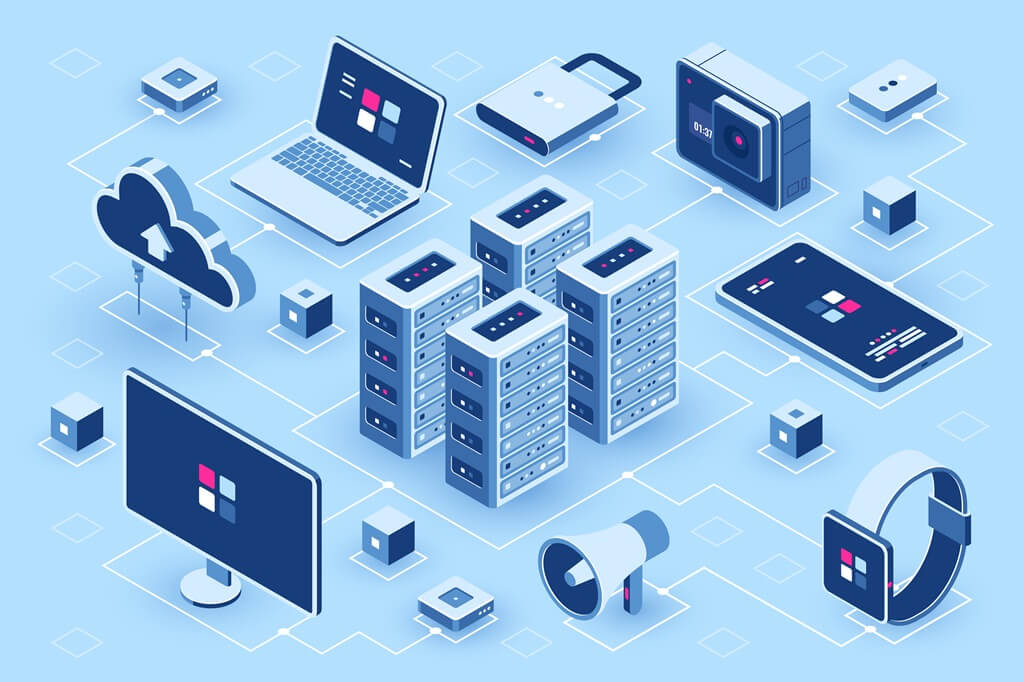The technology sector is in a perpetual state of flux, ceaselessly introducing groundbreaking technologies that fundamentally change how businesses and industries operate. While there’s always excitement around the “next big thing,” it’s worth noting that some technologies have proven to be evergreen, adapting and evolving to meet contemporary demands. Among these enduring technologies, .Net holds a prominent position. Developed by Microsoft, .Net has been around for over two decades and yet, it continues to be in high demand, especially in the year 2024.
Over the years, .Net has proven itself to be not just a technology but a versatile ecosystem encompassing various languages, libraries, and frameworks that enable developers to create a myriad of applications. These applications range from simple desktop software to complex enterprise solutions, mobile apps, and even cutting-edge cloud-based services. The sustained relevance of .Net can be attributed to its adaptability, robust performance, and the backing of a company that has consistently invested in its development. Microsoft’s continued enhancements and the introduction of platforms like .NET Core and .NET 5/6 have further breathed new life into this established technology.
But what does this mean for small business owners, tech savvy entrepreneurs, and strategic planners? Why should you, as someone looking to grow a business in an increasingly competitive market, care about a technology that has been around for years? The answer is simple: .Net offers a proven, reliable foundation upon which you can build robust solutions tailored to your specific needs. Whether you’re developing an internal tool to streamline operations, creating a customer facing app to enhance engagement, or looking to analyze data for better decision making, .Net offers the tools and frameworks to make these objectives achievable.
Moreover, the recent emphasis on digital transformation has only amplified the need for reliable and efficient software solutions. With the COVID19 pandemic acting as a catalyst for rapid digital adoption, businesses are seeking technologies that offer a blend of performance, security, and scalability—traits that .Net offers in abundance. Also, considering its compatibility with emerging technologies such as Artificial Intelligence, Internet of Things (IoT), and Machine Learning, .Net isn’t just a solution for today but a strategic investment for the future.
In this extensive guide, we aim to offer a deep dive into why .Net technology is a key player in the 2024 tech market. We’ll discuss its various features, the reasons behind its lasting demand, and most importantly, how small and medium enterprises can effectively leverage .Net for sustained business growth. From its capabilities to how you can integrate it into your existing business processes, we aim to cover everything you need to make an informed decision about adopting this resilient technology.

The Resurgence of .Net
Not too long ago, some were quick to dismiss .Net as an aging technology, soon to be outpaced by newer platforms. Yet, .Net has successfully withstood the competition, thanks to continuous improvements and the introduction of .NET Core and .NET 5/6, which offer cross platform capabilities. According to Statista, the .NET framework is used by approximately 34% of developers worldwide, highlighting its prominence in the development landscape.
.Net: An Overview
.Net is a software development platform developed by Microsoft. It provides a programming model and an extensive software infrastructure for building robust and scalable applications. With the support for multiple languages like C, VB.NET, and F, it offers developers the flexibility to choose the best tools for their needs.
Why .Net is a Preferred Choice in 2024
1. Speed and Performance
.Net Core has gained widespread recognition for its high performance, often outpacing popular frameworks like Node.js and Java in various benchmarks.
2. Security
.Net comes with a strong security model, making it a go to choose for enterprise level applications where data protection is paramount.
3. Versatility
It can be used to develop a plethora of applications, be it web based, mobile, or IoT applications.
4. Strong Community Support
The active community around .Net ensures that developers have access to a vast array of libraries, tools, and resources.
5. Integration with Emerging Technologies
.Net seamlessly integrates with emerging technologies like Artificial Intelligence, Machine Learning, and Cloud Computing, providing a futureproof solution.
How Small Businesses Can Benefit
1. Cost Efficiency
.Net offers a cost-effective way to build high quality applications. With the support for containerization and cloud integration, businesses can significantly reduce infrastructure costs.
2. Quick Time to Market
The robust libraries and frameworks allow for rapid application development, enabling businesses to launch their products in a shorter time frame.
3. Scalability
As your business grows, .Net offers the scalability required to meet the growing demands, without the need for significant reengineering.
4. Accessibility
Even if you’re not a tech guru, .Net’s user friendly nature ensures that you can manage your applications with minimal technical knowhow.
Practical Steps to Adopt .Net
1. Conduct a Needs Assessment: Understand what your business needs and how .Net can fulfill those needs.
2. Budget Allocation: Make a realistic budget, taking into consideration development, maintenance, and upgrade costs.
3. Consult Experts: Speak to .Net experts to get a clearer idea of how to best utilize the technology.
4. Choose the Right Development Partner: Partner with a credible .Net development company that understands your business requirements.

Choosing a .Net Development Agency
When considering a development partner, look at their portfolio, client reviews, and the technologies they specialize in. Remember, the right partner will not just deliver a technical solution but will also offer strategic business insights.
Future Trends in .Net
Blazor for Web Assembly: As web development evolves, .Net’s Blazor framework is gaining traction for building interactive web UIs.
Serverless Architecture: .Net is increasingly being used in serverless architectures, thanks to its efficiency and scalability.
Microservices: With the growing adoption of microservices, .Net is well positioned to become a popular choice for this architecture.
Conclusion
In a world where the technology landscape is in constant flux, adapting to new trends and shifts can be both a challenge and an opportunity for businesses. With buzzwords like “blockchain,” “AI,” and “machine learning” dominating headlines, it’s easy to get swept up in the wave of emerging technologies. However, amidst this whirlpool of innovation, .Net has proven itself to be a stalwart. Its resilience is not just a testament to its robust architecture but also to its ability to evolve and integrate with newer technologies. In 2024, .Net has demonstrated, yet again, that it is not a relic of the past but a forward-thinking technology platform highly deserving of your attention.
For small business owners and entrepreneurs, this is a pivotal moment. The business world has never been more competitive, and your choices in technology could very well be the tipping point between growth and stagnation. As you evaluate different technology stacks and frameworks for your next project or venture, .Net offers a blend of reliability, security, and versatility that is hard to find elsewhere. Whether you’re building complex enterprise solutions or simpler applications to serve your customers better, .Net provides a robust toolkit that can scale with your ambitions.
Security is another significant aspect that should not be overlooked, especially in an era where cyber threats are becoming increasingly sophisticated. .Net’s built in security features offer peace of mind, allowing you to focus on what really matters—your business goals and customer satisfaction. In fact, with its strong focus on data protection and compliance, adopting .Net could be a cornerstone in establishing a trust-based relationship with your stakeholders.
So, what’s the takeaway? The time is ripe for a reassessment of your technology strategy. With emerging technologies defining the future, it’s crucial to make choices that offer not just cutting-edge capabilities but also long-term viability.

.Net provides this balance, acting as a gamechanger that can empower you to tackle current challenges while positioning you well for future opportunities.
As we move further into the digital age, the questions to ponder are not just about what technology can do for you today, but how it will continue to support your business goals in the years to come. .Net has already answered this question by its enduring relevance and adaptability. Isn’t it time you considered how .Net could be the cornerstone technology that helps you build, grow, and sustain your business in this fast-paced digital environment?

